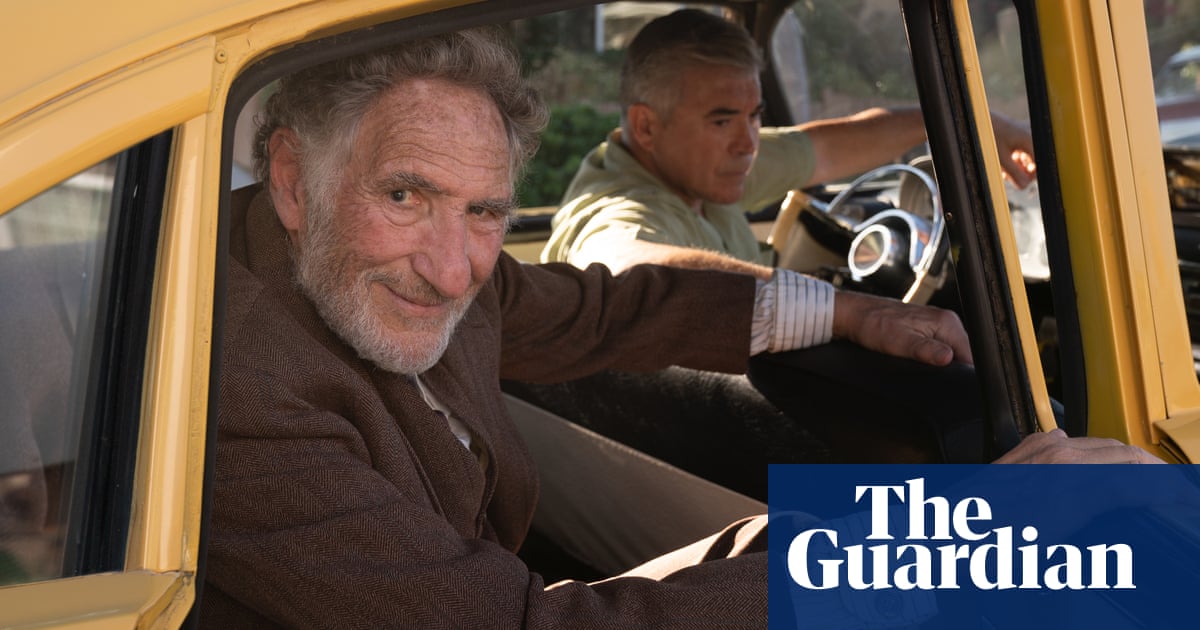
‘Imust tell you that I feel very inadvertently lucky,” says Judd Hirsch of his Oscar nomination for Steven Spielberg’s The Fabelmans. “The great respect for Steven, and the fact that it’s written very well and acted beautifully, I believe turns people’s minds to say, of me, ‘He had something to do with this. He was an important element in this movie.’ This is what I hope they thought. Instead of saying, ‘Well, he is old enough now, let’s give him an Academy Award nomination. It’s been 42 years since the last one’.”
Last nominated in 1981, in fact, for Robert Redford’s Ordinary People, Hirsch will be 88 by the time the Oscars roll around next month. If he wins, he will be the oldest actor to win, beating Anthony Hopkins, 83, who won for The Father two years ago. The Academy likes its oracle figures, and as Uncle Boris, the cracked lion-tamer who wanders in from the Arizona desert to impart words of advice to the teenage Sammy in Spielberg’s autobiographical coming-of-age tale, Hirsch commands every second of his 10 minutes on screen.
“It started out with ‘SS wants to talk to JH,’” says Hirsch, by Zoom from his home in the Catskill mountains. “I said, ‘Who is SS? I know who JH is!’ OK. What’s the big whisper here? What, are we doing a crime story? Am I gonna be arrested? So I asked, ‘Who would I play?’ Steven said, ‘A great-uncle of mine.’ I said, ‘What does he do in the movie?’ He said, ‘He made me become a director.’ I said, ‘So where did he come from?’ and he said, ‘I think maybe Ukraine.’ ‘OK. Well, then what did he sound like?’ and he said: ‘We hardly ever understood a word he said.’ And that, my friend, was the only description I got before I had to come and do it.”
Spielberg gave the rest of the cast photographs and objects to help them play versions of his mother, father and sisters, but he had nothing for Hirsch. During the shoot the director would come in, change something about the camera and give Gabriel LaBelle, the actor playing the young Spielberg, a few notes. But to Hirsch he would say nothing, just smile and go back to his monitor. “He gives me no direction at all. Doesn’t tell me what the man is like. Doesn’t tell me what his effect should be, no matter what. So I think it looks like they’re looking for this egg to be broken open in my brain.”
The result is as far from a gauzy, follow-your-dream advert for the artistic life as it is possible to imagine. “Family, art, life – it will tear you in two,” Boris tells Sam in his thick Ukrainian accent. “It will tear your heart out and leave you lonely.” The look on Sammy’s face is one of sheer terror, as if to say: this is my oracle? After one take, Spielberg started laughing. “I said, ‘But we can’t do this, right?’” says Hirsch. “He said, ‘What?’ and I said, ‘Be funny.’ I mean, this is an outright joke. And he said, ‘Oh yes we can.’” It was to be Hirsch’s only piece of feedback until his final day of shooting, when cast and crew, Spielberg included, applauded his final take.
Only afterwards did the meaning of the part reveal itself to Hirsch. “When I was a kid, when I was five, six years old, I lived in Coney Island and we used to go to the beach. And my memory of that was that the waves were enormous. People said, ‘Be careful.’ My mother said, ‘Don’t go in too deep.’ Well, you want to know something? There were no big waves in Coney Island. There were hardly anything like it. I was short. I was a small kid. In other words, we’re playing a younger memory, not the one he has now – a young person’s memory, not Steven Spielberg at 74 years old. Shocking. The man shocked the shit out of him.”
The story tells you a lot about Hirsch, and the gravelly, existential shtick that has informed the long career of this two-time Emmy and two-time Tony winner. His acting teacher William Hickey, at the HB Studio in New York, once told him: “The most believable thing about you is when you’re innocent of what’s happening.” He didn’t start acting until his late 20s, after getting a degree in physics, experiencing a spell in the Army Reserve and getting a job as an engineer. A decade after making his stage debut as the telephone man in Neil Simon’s hit comedy Barefoot in the Park in the mid-1960s, he was ready to quit acting when he got a call from his agent about a TV comedy show called Taxi.
“I had a kid at the time, a young boy, and I said, ‘No, I want to go to Europe and take the kid with me.’ Then I read the thing, the pilot, and I go, hmm. I called my agent and said, ‘This looks like at least three years, and I’m already 40.’ Make them an offer they can’t accept. So he did. Then the next phone call was my agent saying: ‘They accepted everything.’ I said: ‘Holy crap.’”
Hirsch was at the producer’s house, watching it on opening night with the rest of the cast – Danny DeVito, Andy Kaufman, Marilu Henner – when he saw the credit sequence with his name before even the title of the show. “I didn’t ask for that. I swear to God, I never asked for that. I thought, ‘Whoa. Uh-oh, I’m in trouble’. Now they’re going to say, ‘Who the hell are you?’”
His part as the fast-talking cab-driver Alex in Taxi led to two Emmys and the part in Ordinary People, playing a psychiatrist who, said Redford, “seems like he’s a little nuts” himself. Oscar-nominated in the same supporting category as the film’s breakout star, Timothy Hutton, Hirsch told a journalist that winning would be the worst thing that could happen to him. “Because I would have to explain to the lead actor, who’s in the same category, why I won instead of him. And so I was sitting there with my hands in prayer mode saying, ‘Don’t win, don’t win, don’t win. It’s enough to be nominated, thank you very much. And screw those other people who stuck them in that category. But anyway. Don’t win. Don’t win.’ And I didn’t.”
This time around, he’s happier to accept the good fortune of his nomination, which caps a decade of work in the films of younger auteurs such as the Safdie brothers (Uncut Gems), Noah Baumbach (The Meyerowitz Stories) and Kelly Reichardt (Showing Up). “I call it the ‘motor mind of the business’, meaning you ain’t just showing up and doing lines. It puts you into the conversation. And this is late in life for this, but yes, OK, I accept. That’s why I would appreciate perhaps even winning this Academy Award. Because I believe everybody loved the movie and I had enough to do with it that it meant something. Not because it’s a charity – ‘Oh, well, he’s 87, might as well give him one.’ I’m not interested in that.”












